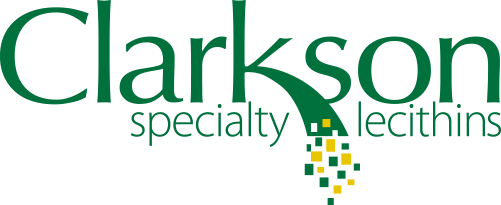is lecithins halal in the United States?

Lecithins are commonly used in the food industry as an emulsifier, helping to blend ingredients together. In terms of halal status, it depends on the source of lecithins. If lecithins are derived from plant-based sources, such as soybeans or sunflower seeds, then it is considered halal and can be marked with a ✅ symbol. However, if lecithins are extracted from animal sources, particularly pork, then it is not halal and should be marked with a ❌ symbol. It is crucial for Muslims to carefully check the source of lecithins before consuming products to ensure adherence to dietary restrictions.
About lecithins in the United States
Lecithins are naturally occurring compounds found in various plants and animals. These phospholipids are widely recognized for their exceptional emulsifying properties and numerous health benefits. Derived primarily from soybeans, sunflower, eggs, and other sources, lecithins have gained popularity in the food, pharmaceutical, and cosmetic industries due to their versatile applications and functional properties.
The unique structure of lecithins, consisting of glycerol, fatty acids, phosphoric acid, and choline, allows them to act as effective emulsifiers. This means they facilitate the mixing and stabilization of two immiscible substances, such as oil and water, by reducing the surface tension between them. As a result, lecithins play a crucial role in the production of various food products, including baked goods, chocolate, margarine, and salad dressings. They create a homogenous texture, increase shelf life, and improve the sensory characteristics of these products by preventing separation or settling of ingredients.
Additionally, lecithins provide valuable health benefits. Choline, a key component of lecithins, is an essential nutrient that plays a vital role in brain health, liver function, and cell membrane integrity. It is involved in neurotransmitter synthesis, lipid metabolism, and the transportation of fat and cholesterol throughout the body. Lecithins also aid in the absorption of fat-soluble vitamins and minerals, making them an essential dietary component.
Moreover, lecithins have demonstrated potential therapeutic effects, including reducing cholesterol levels, supporting cardiovascular health, and improving liver function. They have been extensively studied for their ability to enhance brain health and prevent age-related cognitive decline. Furthermore, lecithins exhibit antioxidant properties and may contribute to overall immune system support.
In conclusion, lecithins are versatile phospholipids commonly derived from soybeans, sunflower, and eggs. With their exceptional emulsifying properties, they play a crucial role in the food industry and offer various health benefits. From improving texture and shelf life to promoting brain and cardiovascular health, lecithins have become an integral ingredient in numerous products and continue to be a topic of scientific interest.
lecithins in the United States Halal Certification
Lecithins are commonly used as an emulsifier and stabilizer in various food products in the United States. They are derived from plant or animal sources and have a wide range of applications in the food and beverage industry.
When it comes to Halal certification in the United States, there are specific requirements and guidelines that need to be followed to ensure compliance with Islamic dietary laws. Halal certification is an assurance that a product can be consumed by Muslims as it meets the strict religious dietary standards.
However, the issue of whether lecithins are considered Halal can be a subject of debate among scholars and certifying bodies. Lecithins derived from plant sources, such as soybeans or sunflowers, are generally considered Halal, as these plants are permissible for Muslim consumption. On the other hand, lecithins derived from animal sources, such as eggs, may not be permissible under Halal guidelines unless obtained from a Halal-certified source and processed according to Islamic requirements.
To obtain Halal certification for products containing lecithins, manufacturers need to ensure that the lecithin used meets the Halal requirements. This includes verifying the source of lecithin, ensuring it is obtained from permissible sources, and following appropriate processing and handling procedures to maintain its Halal status.
Certification bodies such as the Islamic Food and Nutrition Council of America (IFANCA) provide Halal certification services in the United States. They assess the compliance of food products, including those with lecithin additives, with the Halal requirements and issue the appropriate certification to the manufacturers.
In conclusion, ensuring the Halal certification of products containing lecithins in the United States involves vigilance in sourcing and processing to comply with Islamic dietary laws. This provides Muslim consumers with confidence in the Halal status of food products and enables them to make informed choices when selecting items that meet their religious dietary requirements.
Is lecithins? Conclusion
In conclusion, determining whether lecithins are halal requires a thorough analysis of their sources and processing methods. Lecithins are commonly derived from various sources such as soybeans, eggs, and sunflowers. While soy-based and sunflower-based lecithins are generally considered halal, the permissibility of egg-based lecithins is a topic of debate among scholars.
To establish whether lecithins are halal, it is crucial to examine the extraction method. Some lecithins are obtained through solvent extraction, which raises concerns about the potential presence of impurities that may render them haram. However, lecithins extracted using mechanical methods, such as pressing or centrifugation, are considered permissible.
Additionally, the presence of any haram additives or cross-contamination during processing should be taken into account. Manufacturers are expected to comply with halal-certification requirements and provide assurance that no haram substances or cross-contamination occurs during production.
Furthermore, it is advisable for individuals to consult knowledgeable scholars or halal-certification organizations to ensure they make informed choices regarding lecithins. These authorities can provide guidance on specific products and their compliance with halal standards.
In conclusion, while soy-based and sunflower-based lecithins are generally deemed halal, the permissibility of egg-based lecithins requires further examination. Rigorous scrutiny of the extraction method, presence of haram additives, and compliance with halal-certification requirements are essential in determining the halal status of lecithins.
FAQs On is lecithins halal
Q1: Is lecithin halal?
A1: Yes, lecithin is generally considered halal.
Q2: What is lecithin?
A2: Lecithin is a natural fat commonly derived from soybeans, eggs, and other sources.
Q3: Is lecithin derived from soy halal?
A3: Lecithin derived from soy is halal, as soybeans are considered permissible in Islamic dietary guidelines.
Q4: Can lecithin be derived from non-halal sources?
A4: Yes, lecithin can be derived from non-halal sources such as animal fats. Therefore, it is crucial to know the source before consuming any product containing lecithin.
Q5: How can I determine if lecithin is halal?
A5: To determine if lecithin is halal, it is recommended to look for certification symbols or labels from reputable halal certifying organizations.
Q6: Are all lecithin products labeled as halal?
A6: Not all lecithin products are labeled as halal, as it depends on the manufacturing process and source of the lecithin used.
Q7: Can lecithin be used in both food and non-food products?
A7: Yes, lecithin is a versatile ingredient and can be found in various food and non-food products such as chocolates, baked goods, pharmaceuticals, and cosmetics.
Q8: Is lecithin considered a common allergen?
A8: Although lecithin derived from soybeans is considered a common allergen, it does not affect the halal status of the ingredient.
Q9: Are there any specific restrictions on the consumption of lecithin in Islamic dietary guidelines?
A9: No, there are no specific restrictions on the consumption of lecithin in Islamic dietary guidelines.
Q10: Can the halal status of lecithin change in different regions or countries?
A10: The halal status of lecithin can vary depending on regional or local halal certification requirements. It is best to refer to local halal certifying authorities or consult with knowledgeable scholars regarding specific regions or countries’ guidelines.

Hello, fellow explorers and cultural enthusiasts! I’m Sacide Tuba Barkçin, the heart and soul behind ‘Halal Travel Style’. My passion for travel is not just a hobby, it’s a way of life. From bustling city streets to serene natural landscapes, I’ve been fortunate enough to traverse diverse terrains and immerse myself in various cultures.
My journey is not just about seeing new places; it’s about experiencing the world through the lens of Halal. Every destination I visit, every story I write, is a testament to the harmony of travel and faith. I believe that exploring the world should not compromise our beliefs, but rather enhance our understanding and appreciation of them.
Join me as I navigate the globe, one Halal experience at a time. Whether you’re a seasoned traveler or just starting your journey, I hope to inspire you to explore the world with faith and style.
